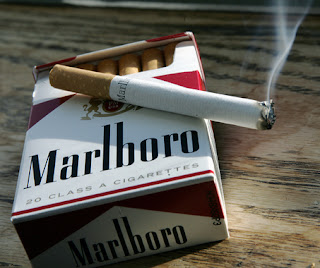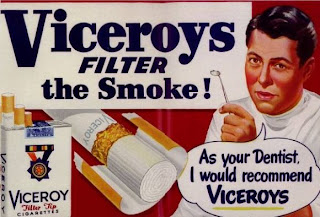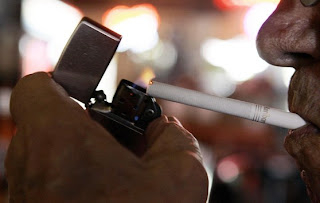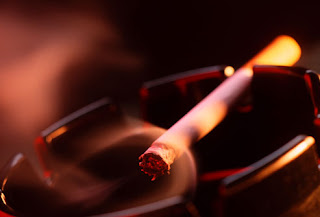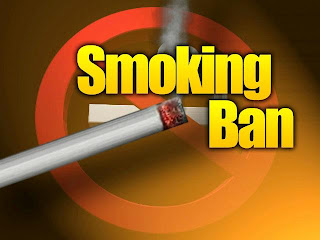
Liberia has begun implementing legislation passed in 2008 that prohibits smoking in buses, restaurants, workplaces, and other public places. The ban also prohibits those under the age of 18 from buying or using tobacco products.
The ban is part of efforts to check increased rates of tobacco use and the attendant health concerns and costs.
Global public health experts say it remains a challenge to educate Africans about the risks of secondhand smoke, which contains dangerous compounds like tar, benzene and carbon monoxide. Secondhand smoke has been linked to cancer, low birth weight and chronic lung-related illnesses, particularly in children.
"An example of this would be people who are suffering asthma," says said Liberian public health expert William Roland. "Someone suffering from asthma is sitting near someone who is smoking, and that person is going to have what we call hyper-secretion, a hyper-sensitivity to the smoke [that] produce more mucus in their respiratory tract that will cause pulmonary obstruction."
Though rates of tobacco use in sub-Saharan Africa remain relatively low, health experts say they are climbing faster than anywhere else in the world.
Africa is what tobacco industry heavyweights call a growing market. Public health experts say it could be the site of a "pandemic" of smoking-related illnesses, such as heart attacks and cancer. Experts warn that these diseases, though preventable, could cripple Africa's already weak and under-resourced healthcare systems.
The Global Smokefree Partnership, which includes the American Cancer Society, says tobacco use in more than half of the African countries could double by 2021 if governments do not take swift action, such as banning public smoking and levying higher taxes on cigarettes to make them more expensive.
Liberia joins a handful of African countries, including South Africa, Kenya and Niger, that have passed public smoking bans in the past decade, though degrees of enforcement vary.
Some restaurant owners in the capital, Monrovia, worry that the smoking ban will hurt business. Others like Larry Togba say it will help.
"Most of my customers complain about other customers smoking in the restaurant," says Togba. "Even if I lose some of my customers for this, I hope the government will enforce this law."
Smokers like Tarnue Varnie in Monrovia, however, are less than pleased.
"This is a serious violation of our rights [and] I totally disagree that smoking in public will cause health hazard," he says. "This is a habit that we can't easily put aside and I think the government needs to be concentrating on other critical issues instead of talking about public smoking."
The Liberian National Police are enforcing the smoking ban, and businesses or other public institutions caught in violation face fines of $10,000 to $25,000. Individuals found smoking in restricted areas or facilitating the purchase of tobacco products by minors face 2nd degree misdemeanor charges and fines of approximately $400.

